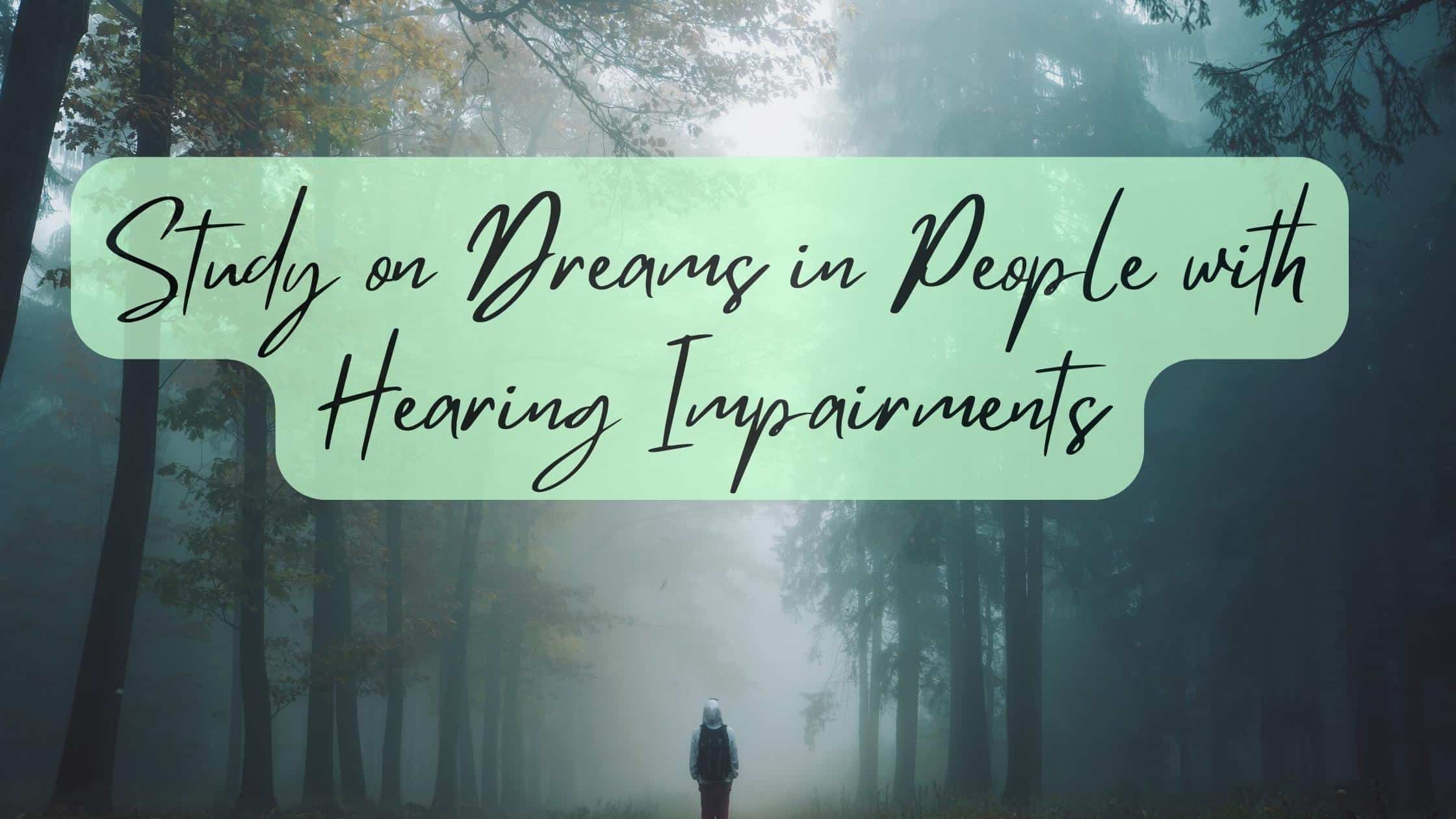
- Common Misconceptions That Delay Hearing Loss Diagnosis - June 6, 2025
- Signs Your Earwax Buildup Needs Professional Attention - May 29, 2025
- Preparing for a Hearing Test and What You Should Bring - May 16, 2025
Do you remember your dreams? Some people can recall the vivid places they travel to and the places their subconscious leads them. Meanwhile, some people wake up in the morning with no recollection of the places they’ve been while they were in the dream world. Nonetheless, whether you remember your dreams or not, everyone dreams. It’s important for your brain’s health.
There are four stages of sleep that the brain enters multiple times in a night. The fourth and final stage is called REM which stands for rapid eye movement. REM sleep is the only time when our brain is completely devoid of the anxiety-triggering molecule noradrenaline. REM sleep is a time where we can process difficult and traumatic things in our life free of a key stress chemical. This allows us to process upsetting memories in a safe and calmer environment. Just think of dreams as overnight therapy. But what about those who have lost senses previously processed such as hearing? Some neurologists and audiologists have even suggested that dreaming can have significant effects on the hearing impaired.
Hearing Loss and its Far-reaching Effects
Hearing loss is a condition that can be present at birth or developed at any time during a lifetime due to multiple causes such as exposure to loud sounds, impact on the head, infections, or exposure to certain chemicals. It’s commonly underestimated in the reverberating health effects it can have. It starts as a communication difficulty but can quickly start to erode personal and professional relationships, leading to depression, anxiety, sleeplessness, and isolation. In addition, unaddressed hearing loss can lead to cognitive decline and a greater risk of falls, accidents, and hospitalizations.
What is Sound Like in Dreams for People with Hearing Loss?
Researchers have long wondered how different sensory deficiencies can affect dreams. It may be a clear window into the neurological effects of such losses, like the loss of vision or hearing. For instance, how do people born blind dream? Similarly, what does sound manifest itself as in dreams for those who have long been deprived of sound?
Research on Dreams for the Hearing Impaired
A 2011 study determined that those with hearing loss can in fact dream in sound. Researchers interviewed a tiny cohort of 14 people with hearing loss about their dreams. Each of the participants reported being able to hear in their dreams, despite having limited hearing while awake.
Another larger study published in Dreaming in 2016 found that those who have hearing loss do however dream differently than those with normal hearing. By interviewing a cohort of over 400 high school students they noticed significant differences in hearing-impaired subjects. They found that the 86 students interviewed with hearing loss seemed to have more vivid dreams. This included an array of enhanced senses, which included elevated smell, taste, pain, and temperature changes. Participants with hearing loss also reported emotions during dreams such as surprise, anger, fear, hope, and joy. The researchers noted that these subjects seemed to recall their dreams with greater clarity and frequency. While subjects with normal hearing did report emotion and sensation within their dreams it seemed to occur less regularly.
Sensory Compensation
Sensory compensation occurs when a sense such as vision, touch, or hearing, is lost. In its place, it is reasonable to believe that subjects may dream with more clarity and sensation. When one sense is weakened, often other senses will become more prominent. This is common in hearing-impaired people in how they often rely on lip-reading. Often other senses will fill in the gap which is lost due to a sensory deficiency. Due to the therapeutic nature of dreaming, it is reasonable to believe that people rely on dreaming when living with a sensory deficiency such as hearing loss as a time and place to heal and work out complex struggles.
Schedule a Hearing Test
If you suspect you are struggling with a hearing loss you may experience it first in the form of more vivid dreams. However, there are many other ways to tell. If you struggle to hear what people say to you daily, or family members complain you turn up the TV too loud, then it’s reasonable to schedule a hearing exam. We can help you find the best solution for your hearing needs. Schedule a hearing test today.
